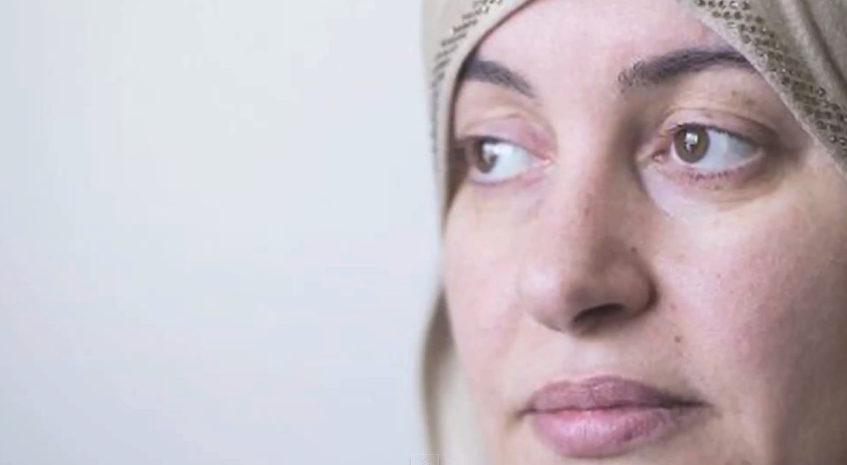On the back-breaking jihad of speaking truth to pain
By Sherman Jackson
“Speak truth to power.” How often we hear these words, especially when power takes the side of falsehood and injustice. Yet, power, falsehood and injustice are not the only challenges to truth. Pain — emotional, psychological or spiritual — can be an equally powerful inhibitor of the will to speak the truth.
I was recently reminded of this by two events that I was called upon to comment about: the tragic death of three precious young Muslims in Chapel Hill, NC; and a case of a Muslim cleric and head of a Qur’?n-memorization school in Chicago accused of sexually molesting several young ladies.
In both cases, the Muslim community admirably came out in support of the victims and their families. The Chapel Hill murders were roundly condemned for the bigotry and hate that motivated them. And the Chicago Imam was unequivocally called out for his sins, while his victims were identified as victims who should neither be blamed nor stigmatized.
And yet, in both cases I found myself nursing the eerie feeling that some profound and fundamental truths were being ignored or tippy-toed around. And I hesitated to comment on either issue for fear of not being able to express myself in a manner sufficiently deferential to the pain and suffering of the victims and their families, an inability I feared that might prompt me to speak in a manner that betrayed my conscience.
Meanwhile, beyond the feelings of the victims and their families, there was a broader context that informed my hesitation. Modern (liberal) truth is generally easy to swallow, because modern man is its author. By contrast, Qur’?nic truth is not always so tasty, and even Muslims are not always prepared to embrace it: “They argue with you about the truth after it has been made clear to them, as if they were being herded to death while they look on.” [8:6]
Thus I faced a double-disincentive: the feelings of those affected by the tragedies in question; and the ‘feelings’ or attitudes of the broader society that socializes us and calibrates our preparedness to recognize or accept various types and depths of truth. And yet, I felt, it may be precisely during these times of tragedy that we develop the greatest need to remind ourselves of certain Qur’?nic truths.
The tragedy in North Carolina was simply heart-wrenching. And, especially as a parent, I do not have the words to convey the depth of sorrow, empathy and condolence I feel for the parents of these precious souls. I cannot imagine being visited with such a travesty; and I honestly do not know how well I would fare if I was.
But even here, beneath all this fear, doubt and horror, there is a truth that I must face. And that truth is that I may indeed be called upon to face such a crucible, and no amount of piety, knowledge, standing in the Community or anything else will save me from it. For this will ultimately be the choice of God, for reasons He may or may not inspire me to understand.
Yet, if I am able to hold onto to this truth, despite my pain and anguish, these afflictions may enrich me and grant me insights that amplify God’s truth beyond all doubt and resistance. Perhaps, this is what the Prophet was alluding to when he told us that the prophets are the most severely afflicted of people.
The truth of the matter is that when God says, “We will try you with something of fear and hunger and depletion of money, souls and foodstuffs,” [2:156] this is real: some of us will be visited with these afflictions. Of course, our infatuation with modern utopias makes this extremely difficult to accept. For if we worship a God who is supposed to be all-powerful, we should be able to guarantee at least as much well-being as scientism, secularism or Marxism do.
And many of us believe that we can, if only we are pious enough to keep God on our side. But the legacy of the Prophet teaches us that this is simply not the way things work: “Say, I control the ability to bring neither benefit nor harm to myself, except as God wills. And if I but knew the unseen I would augment nothing but good for myself and bad would never touch me…” [7:188] All of the Prophet’s children except F??imah died before him! Yet, he remained the most certain of men.
Such truths are hard to express in times of tragedy. For it is easy to mistake them for a fatalism that leaves us asking, “What’s the point?” But instead of fatalism what this should point us to is that life is a mysterious gift from God. And we worship God not as divine Santa Claus who gives us everything we want as long as we are “nice” but because we recognize the fundamental truth that God is the Gifter of Life.
This fact alone, however, is not what gives life “meaning”: children, money, sex, our reputations and the Super Bowl give life meaning. This fact gives life urgency, hope, passion, value, fear and mystery beyond the pale of mere “meaning.” Tragedy, like good fortune, reminds us that life is ultimately not governed by fixed, unchangeable laws. It is governed by the irresistible will of God, who disposes as He pleases. And “We will show them our signs on the horizons and in their souls until it is clear to them that this is the truth.” [41:54]
Unlike North Carolina, however, the tragedy in Chicago had Muslim victims and Muslim victimizers. And while the lessons of tragedy apply to these victims as well, there are other truths that bear being told here.
To begin with, the liberal notion of equality notwithstanding, Muslim clerics and religious leaders are not equal to everyone else. When they publicly betray the moral values of Islam they do not simply commit personal indiscretions; they undermine the confidence of the masses and reinforce the case against Islam, at a time when it lives under vicious indictment. In this regard, religious leaders are more like the wives of the Prophet: “O wives of the Prophet, whoever among you commits an open act of lewdness, her punishment (in the Hereafter) shall be twice multiplied ….” [33:30]
Yet, one’s status as a religious leader does not negate his or status as a Muslim brother or sister. And we should never adopt a politics of personal destruction that ignores the value of repentance or slams its doors shut. For repentance is central to the very DNA of Islam.
As a community, we are never authorized to deny or impede a Muslim’s access to repentance, regardless of the severity of his or her sins. We may choose not to forgive them; we may refuse to trust them; we may be duty-bound to punish them; and we may see fit to remove them from office. But we must never seek to destroy or even weaken their resolve to seek the mercy and forgiveness of God, lest we end up as guilty as they are of betraying the legacy of Muhammad.
The question in all of this is not one of airing dirty laundry. One does not have to see my dirty laundry to know what kind of person I am if I don’t cut my grass for months. But the fact that the dominant culture does not value repentance is no reason to allow ourselves to forget how central it is to Islam, even in our zeal to deflect negative press. Indeed, we must remember, “Verily, God loves those who constantly repent….” [2:222]
Of course, our main concern must be with the victims of these alleged crimes. But here we must face the fact that, beyond the crimes themselves, the blame and stigma that are likely to attach to them is not the doing of their molester; it is the doing of us, the Muslim community at large.
It is we who add insult to injury by indulging cultural and ethnic idiocies for which God has sent down no authority, all the while wrapping ourselves in the mantle of religion. If we are going to address all of the victimizers in this case, we should be sure to include ourselves.
As Martin Luther King, Jr. once said, “We got some difficult days ahead.” I hope that in the face of all the emotional, spiritual and psychological challenges we are likely to face that God will bless us with the words, wisdom, humility and courage to speak truth not only to power but also to pain. Otherwise, we may turn out to be our own worst enemies. And God knows best.














2015
1,003 views
views
1
comments